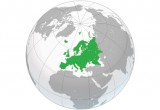Estonia turns to secunet eID for advanced travel document control
Secunet technology helps the digitally advanced country better manage travel documents
08 March, 2021
category: Digital ID, Government, Transit
As Estonia continues to build out its electronic machine readable travel documents capability — another feather in the cap of in the nation’s digital ID infrastructure — the Baltic country has turned to secunet for needed assistance.
The delivered Country-Signing PKI and EAC-PKI are used by the customer in order to handle and manage all PKI related processes in an automated way
Estonia has become the latest European country to employ the secunet eID PKI suite for their certificate management, according to the technology provider. Secunet said it delivered its eID PKI Suite to the Estonian IT and Development Centre to be used for the issuance and verification of such electronic machine readable travel documents (eMRTD) as digital IDs and passports.
Secunet eID PKI suite offers more security
“The secunet eID PKI Suite embeds identity documents into a high security infrastructure,” secunet explains. “This is the best protection against manipulation and unauthorized access, and it enables border controls to utilize the full potential of modern electronic ID documents.”
The delivered Country-Signing PKI and EAC-PKI are used by the customer in order to handle and manage all PKI related processes in an automated way, secunet says. The modules of secunet’s eID PKI Suite solution are well established and fulfill the latest requirements towards PKI in the eID and border control sector. All CA components implemented in Estonia are using the certified CA kernel version of eID PKI Suite, which is certified according to “Certificate Issuing and Management Components Protection Profile V1.5,” the technology provider says.
The pandemic played a role in how this technology was deployed. Due to the ongoing COVID-19 outbreak, secunet said it installed the PKI test environment completely via remote access. Training and testing were also provided remotely. Thanks to the flexible, modular and interoperable approach, secunet customers benefit from a smooth integration into their systems regardless of whether it takes place on site or remotely.
“With this comprehensive and efficient PKI infrastructure, Estonia is well equipped to perform automated border control processes to support the new border control processes within the implementation of the EU Entry Exit System,” secunet said.
In general, the company says, the further spread of digital ID and eMRTD programs depends on such efforts, whether in Estonia or in other countries.
But before these new processes can be implemented, the technology provider says, “194 states worldwide must exchange information such as certificates with each other – and that for an estimated number of one billion flight-passengers per year, in addition to the travelers on land and sea.”




